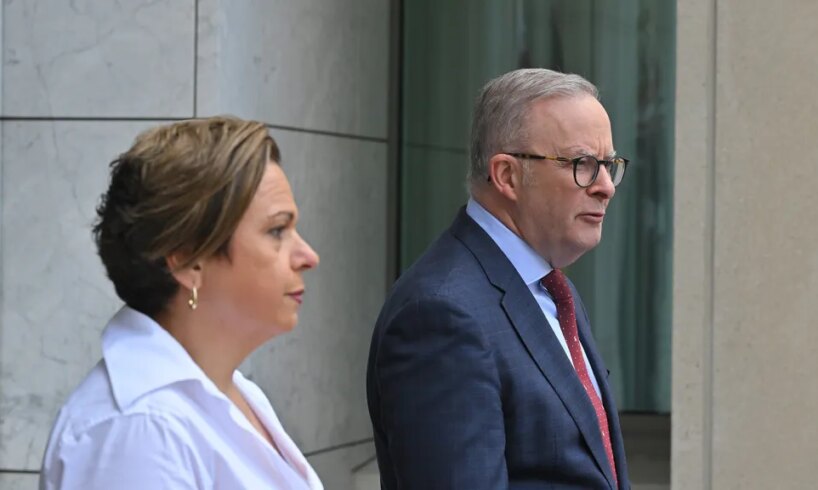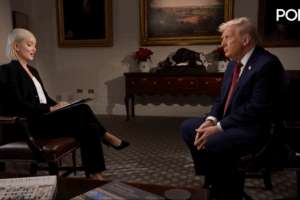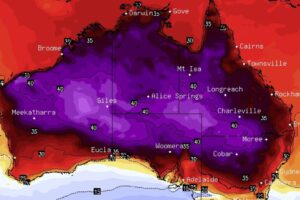
In opposition to basically everything Labor has ever said about being an open and transparent government, this week it announced plans to make Australia’s far from ideal freedom of information (FOI) system even more difficult to navigate.
And Crikey confirmed, while the government claims this is in response to the threat of “offshore actors” who could “exploit” the FOI system to seek “government-held information for potentially nefarious purposes”, it couldn’t provide a single example of that actually happening. The reason? National security, of course! The government was, apparently, “unable to disclose classified information provided to us by the national intelligence community”.
Is there anything that can’t prompt “national security concerns”? Here’s a (secret and heavily redacted) list which suggests not.
Related Article Block Placeholder
Article ID: 1220030
Privacy of any kind, anywhere, at any time
The Australian Federal Police was, as recently as last year, using Clearview AI, which has been dubbed the “world’s most controversial company” after it was revealed in a 2020 New York Times article to have built its facial recognition app based on a database of billions of illegally obtained images scraped from social media.
Queensland uses facial recognition systems at sports stadiums, and uploads all Queensland driver’s licence photos to a national facial recognition database.
Independent. Irreverent. In your inbox
Get the headlines they don’t want you to read. Sign up to Crikey’s free newsletters for fearless reporting, sharp analysis, and a touch of chaos
By continuing, you agree to our Terms & Conditions and Privacy Policy.
In 2019, it was reported that legislation allowing national security agencies to access Australians’ metadata — the information recorded by a telco when you make a call or use the internet such as location, who was called or texted, and how long for, what websites were visited and when, and much more — was being exploited by a range of different government agencies for other purposes, such the Veterinary Surgeons Board of WA and Victorian Fisheries.
We’re so used to having no privacy from our employers that it’s hard to remember, but people were actually mad when, in 2008, then deputy prime minister Julia Gillard approved proposed new laws that, in the name of “counter-terrorism measures”, would give employers power to snoop on their employees’ emails.
People wanting a little “me” time aren’t exempt. Back in 2019, the parliamentary joint committee on intelligence and security was forced to consider requiring a “Face Verification Service” to access porn. It was sent back to the drawing board on the basis that the enabling legislation the Home Affairs Department had drafted featured virtually no safeguards regarding privacy.
Strawberries
Oh hey, remember this one? When needles started appearing in strawberries in 2018, it was deemed a national security risk by the government. As announced by then prime minister Scott Morrison via a Sorikinesque walk and talk, then attorney-general Christian Porter strengthened laws around the contamination of goods, increasing the maximum penalty to 15 years in prison and adding a clause to an espionage and foreign interference bill to cover food.
Related Article Block Placeholder
Article ID: 1219825
Parliamentary scrutiny
Parliament has deliberately restricted its own powers to interrogate “intelligence matters”. The Intelligence Services Act 2001 prohibits the parliamentary joint committee on intelligence and security from “reviewing the intelligence gathering and assessment priorities” or “reviewing particular operations that have been, are being or are proposed to be undertaken” by ASIS, ASIO and the other intelligence agencies nor “the sources of information, other operational assistance or operational methods” available to the agencies.
Open justice
In 2004 Australia bugged the East Timor cabinet room to help secure commercial advantages for a company that would go on to employ at least two of the figures who would have approved the bugging. We know this because an intelligence agent known as Witness K made it public — and was promptly dragged through the courts, along with his lawyer Bernard Collaery, for years.
During the case, ACT Supreme Court Magistrate David Mossop ruled in favour of then attorney-general Christian Porter’s team, meaning evidence could be used against Collaery that he, and the public, would not be allowed to know. The Supreme Court overturned Mossop’s ruling that secret evidence could be used. The government appealed and asked that the court’s reasoning for its decision to reject the secrecy demands itself be kept secret.
Then there was Witness J, whose trial was conducted in total secrecy — which is permitted under the National Security Information (Criminal and Civil Proceedings) Act.
Music
In late 2019, NSW Police used consorting laws, supposedly intended to curb bikie gangs or terrorists, to stop Western Sydney hip hop group OneFour from being able to perform.
Related Article Block Placeholder
Article ID: 1219841
Protest
A flurry of legislation followed weeks of media coverage of the discovery of a caravan laden with decades-old explosives and the address of a Sydney synagogue in the outer suburb of Dural in January this year. Australian Federal Police deputy commissioner of national security Krissy Barrett later argued that her investigators “almost immediately” believed the supposed plot was a hoax.
Yet NSW Premier Chris Minns at the time said the police had discovered “a potential mass casualty event”, adding “there’s only one way of calling it out and that is terrorism”, which earned Prime Minister Anthony Albanese’s unequivocal agreement.
NSW swiftly passed new laws restricting the right to protest, and broadened the coverage of the state’s protest permit system. Following the revelation of the hoax, a state legislative inquiry was established to investigate whether the public was misled in the lead-up to the laws’ passing.
Have we missed any times when “national security” meant “national secrecy”?
We want to hear from you. Write to us at letters@crikey.com.au to be published in Crikey. Please include your full name. We reserve the right to edit for length and clarity.





